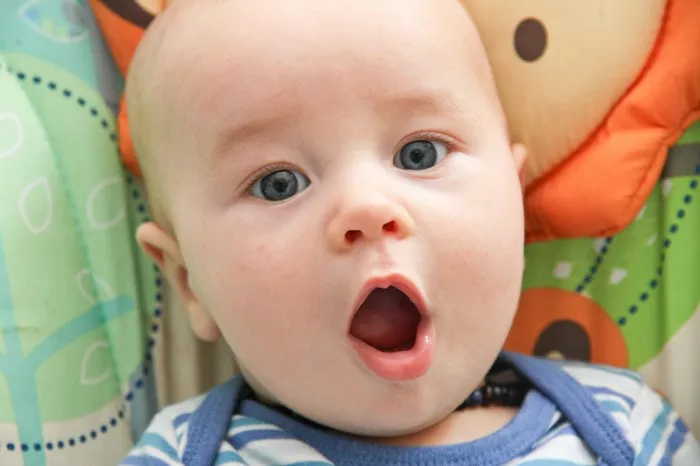1. Can you catch a cold from your baby?
Yes, you can catch a cold from your baby. Cold viruses are highly contagious and can easily spread through close contact, respiratory droplets, and contaminated surfaces. When your baby coughs, sneezes, or even just breathes, they release virus particles into the air, which can then be inhaled by others nearby. Additionally, the virus can linger on surfaces such as toys, doorknobs, and countertops, increasing the risk of transmission through touch.
2. How colds spread:
Colds primarily spread through respiratory droplets expelled when an infected person talks, coughs, or sneezes. These droplets can travel through the air and land in the mouths or noses of people nearby, infecting them. Babies and young children are particularly susceptible to colds due to their developing immune systems and tendency to put their hands or objects in their mouths, which can introduce the virus into their bodies. Moreover, infants and young children may shed the virus for a longer duration, making them more contagious.
3. Symptoms of a cold in babies and adults:
Symptoms of a cold can vary between babies and adults, but common indicators include:
In Babies:
Runny or stuffy nose
Sneezing
Coughing
Mild fever
Irritability or fussiness
Decreased appetite
In Adults:
Sore throat
Runny or stuffy nose
Cough
Sneezing
Fatigue
Body aches
Mild fever
It’s important to note that while some symptoms overlap, babies may not be able to communicate discomfort as effectively as adults, so caregivers should be vigilant for signs of illness.
4. Preventing transmission:
To reduce the risk of catching a cold from your baby, follow these preventive measures:
Frequent handwashing: Wash your hands thoroughly with soap and water for at least 20 seconds, especially after caring for your baby, handling tissues or diapers, and before preparing food.
Disinfecting surfaces: Regularly clean and disinfect commonly touched surfaces, such as doorknobs, countertops, and toys, to remove any lingering virus particles.
Avoiding close contact: While it may be challenging, try to minimize close contact with your baby when they are sick to reduce the likelihood of transmission.
Covering mouth and nose: Encourage everyone in the household to cover their mouth and nose with a tissue or their elbow when coughing or sneezing to prevent the spread of respiratory droplets.
Boosting immune system: Maintain a healthy lifestyle by eating nutritious foods, staying hydrated, getting enough sleep, and managing stress to support your immune system’s ability to fight off infections.
5. Caring for a sick baby:
If your baby has a cold, here are some tips to help alleviate their symptoms and ensure their comfort:
Managing fever: If your baby develops a fever, consult their pediatrician for appropriate dosage and administration of infant-safe fever-reducing medications, such as acetaminophen or ibuprofen.
Easing congestion: Use a bulb syringe or nasal aspirator to gently suction mucus from your baby’s nose, and consider using a cool-mist humidifier in their room to help loosen congestion.
Ensuring hydration: Offer plenty of breast milk or formula to keep your baby hydrated, as fluids are essential for recovery. If your baby is older than six months, you can also offer small sips of water.
When to seek medical attention: Contact your baby’s pediatrician if they have difficulty breathing, persistent fever, excessive fussiness, or if you have concerns about their health.
6. Reassurance and support:
Caring for a sick baby can be challenging, especially when you’re also feeling under the weather. Remember that most colds resolve on their own with proper care, and it’s okay to ask for help from family, friends, or healthcare professionals if needed. Take care of yourself as well, and prioritize rest and self-care to recover and continue providing the best care for your baby.
Conclusion
In conclusion, while it is possible to catch a cold from your baby due to the highly contagious nature of cold viruses, taking preventive measures and providing proper care can help reduce the risk of transmission and ensure both you and your baby recover quickly. Stay vigilant, practice good hygiene, and seek medical advice if necessary to ensure the health and well-being of your family.
FAQs
Can babies pass a cold to parents?
Yes, babies can pass a cold to parents. Since babies often have weaker immune systems and are in close contact with caregivers, they can easily transmit viruses like the common cold to parents through coughing, sneezing, or contact with respiratory secretions.
How contagious is a baby’s cold?
A baby’s cold can be highly contagious. Babies can shed the virus through respiratory secretions, making it easy for the virus to spread to others through close contact. Additionally, since babies may not practice good hygiene, such as covering their mouths when coughing or sneezing, the risk of transmission is higher.
Can you catch colds off babies?
Yes, you can catch colds off babies. Babies can be significant sources of cold viruses due to their close interactions and lack of hygiene awareness. Caregivers and family members, especially those in close contact with babies, are at increased risk of catching colds from them.
Related topics:
- Can You Give Cold Breast Milk to a Newborn?
- Recognizing and Managing a Cold in Your Infant: Tips & Methods
- Does a Cold Increase SIDS Risk?


